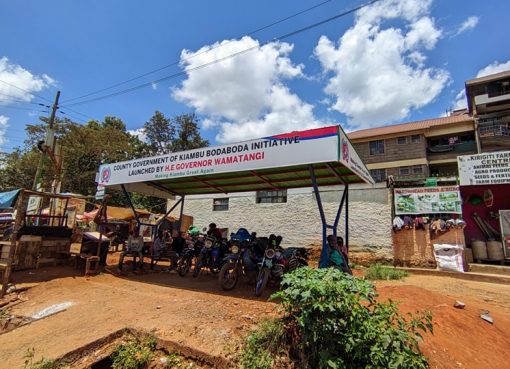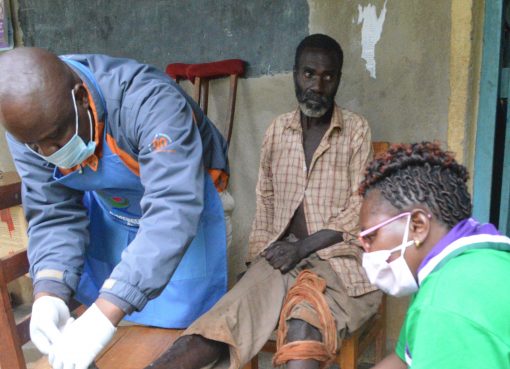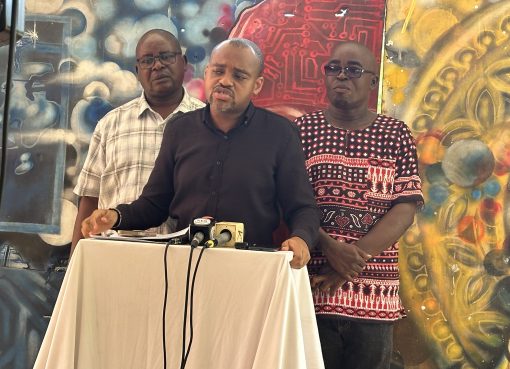The National Cohesion and Integration Commission (NCIC) has summoned and questioned about ten political leaders who have been accused of hate speech and incitement to violence.
The NCIC Chairperson Reverend (Dr.) Samuel Kobia says the commission has proposed possible preferred charges to the Office of the Director of Public Prosecutions (ODPP) to go ahead with the court process.
The commission chair revealed that some of the political leaders include Kapseret Member of Parliament (MP) Oscar Kipchumba Sudi and his counterparts Farah Maalim (Daadab) and Daniel Sitati Wanyama (Webuye) and demanded for their immediate arraignment in court to face the charges.
He said the organization will not hesitate to recommend the prosecution of leaders irrespective of their political leanings as long as they are found culpable of propagate hate speech and incitement and other issues that undermine the security and stability of the country.
In a hard hitting speech delivered in Naivasha, Rev. (Dr.) Kobia castigated recent sentiments by politicians perceived to be anti- certain communities, and at the same time called for an end of abductions in the country.
“We are alarmed by the surge in deeply divisive rhetoric in the country which border on hate speech and ethnic contempt that has plagued the social media platforms as well as the public rallies in the recent weeks. As the nation’s voice of reason, we demand an immediate return to order and decorum.
These reckless utterances are not short of a call to war and have absolutely no place in Kenya. We shall not stand by and let this poison our nation’s peace and social cohesion fragile fabric. We therefore warn against use and misuse of social media including hatemongers and inciters,” Kobia said.
It`s worth noting that political temperatures have been rising in the country since what are known as the G-Z protests that rocked the country in June last year over the Finance Bill of 2024 / 25 with some communities feeling isolated from the mainstream Government. President Ruto formed an all-inclusive Government in what was seen as a move to help ease the situation.
Reverend Kobia also revealed that the commission is currently sponsoring a bill in the House to strengthen its mandate in curbing cases of hate speech and incitement to violence. NCIC is at the same time monitoring the country’s situation to avoid a situation similar to the one that led to anarchy and loss of lives and property during the demos in June 2024.
The NCIC commission chair said as a Commission mandated to promote national identity, unity, and values, and to mitigate ethno-political competition and ethnically motivated violence, and urged all Kenyans, including political leaders, to exercise tolerance in both their actions and speech.
“Utterances such as Us versus Them particularly from the political class continue to divide the country and this must stop immediately. It is imperative that we all protect and safeguard the peace and cohesion Kenya has worked tirelessly to build over the past six decades. And what has taken that long to build can be destroyed in a matter of days. We must prioritize unity and ensure that divisive rhetoric has no place in our society,” Kobia said.
He observed that over time, the country has continued to see a troubling decline in social and moral values, evidenced by the increasing incidences of abuse and brutal murders, particularly of young people and women, including the very elderly. To this end, we call upon some of the religious leaders to have decorum in the statements they make.
“The severe erosion of mutual respect between generations has become all too apparent, signalling a deep dysfunction in character development across society. This alarming trend is unmistakable evidence of a society in distress, and it demands urgent, decisive action from all stakeholders to tackle the root causes and restore order and decency,” the NCIC chair stated and added that the utterances which are akin to negative ethnicity are absolutely inexcusable, specifically considering that Kenya is home to over 45 ethnic groups.
He reminded the politicians that the Constitution 2010, Article 33 guarantees freedom of expression, but it is very clear that the same Constitution does not guarantee freedom to propaganda for war, incitement to violence, hate speech, advocacy of hatred that constitute ethnic incitement, vilification of others or incitement to cause harm based on any ground of discrimination; and the National Cohesion Act 2008 Section 13 (1) (a) and Section 62 alongside numerous other laws, unequivocally protects the rights of all Kenyans, regardless of their religious, ethnic, or political affiliations and added that the rights of all Kenyans must be respected.
NCIC noted that in the run up to the 2022 General Elections, a Conflict Hotspot Mapping study findings indicated resurgence of organized criminal gangs which has become a serious concern, with these groups increasingly active in various counties across the country in the recent pats. Nairobi, Mombasa, Kisumu, Nakuru, and Kiambu have seen a significant rise in gang-related activities, ranging from extortion and armed robberies to violent attacks on residents and businesses.
“These criminal organizations have been able to establish a strong presence in both urban and peri-urban areas, where their influence and operations have disrupted local communities, making everyday life dangerous for many Kenyans and the operations of the gangs are increasingly becoming sophisticated as they target well educated idle youth for recruitment,” Rev. Kobia noted with concern.
He said the situation is further exacerbated by the involvement of these gangs in cybercrimes, illicit activities such as drug trafficking and smuggling, which stoke violence and destabilize communities, thus posing a serious threat to public safety, hindering efforts to achieve peace, security, and socio-economic progress in affected regions.
Kobia warned that if allowed to take root, these gangs will be incredibly difficult to dismantle, endangering the nation’s stability. We must act decisively now to prevent our country from following the path of countries in some parts of the world where criminal gangs have gained such a stronghold that they control daily life, rendering governance nearly impossible.
“It is imperative that we nip this problem in the bud. Otherwise the evolution of organized criminal gangs could lead to what a study by the UN terms state capture which is just one step to becoming a criminalized state,” the NCIC chair admonished.
To tackle these challenges, the Commission is conducting an in-depth study on organized criminal gangs and their threat to the social fabric of our nation whose goal is to prevent political decay and safeguard the moral, social, political, and economic integrity of our country and the commission is committed to taking decisive action and restoring hope for a unified and prosperous future.
“We therefore call on all Kenyans from all walks of life to exercise tolerance and harmonious co-existence. It behooves us as Kenyans to uphold and guard jealously the peace Kenyans have been enjoying over the past years.” Kobia entreated.
The National Cohesion and Integration Commission (NCIC) is a statutory body established under the National Cohesion and Integration Act No. 12 of 2008.
NCIC is mandated to facilitate and promote equality of opportunity, good relations, harmony and peaceful co-existence between persons of the different ethnic, religious and racial communities of Kenya, and to advise the Government on all aspects thereof.
By Mabel Keya- Shikuku





